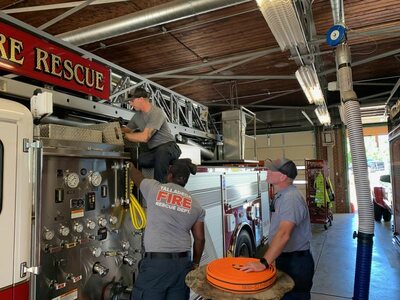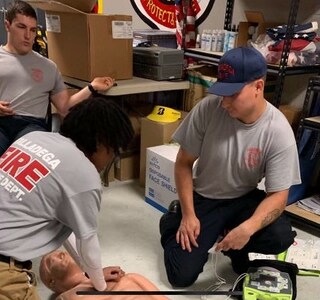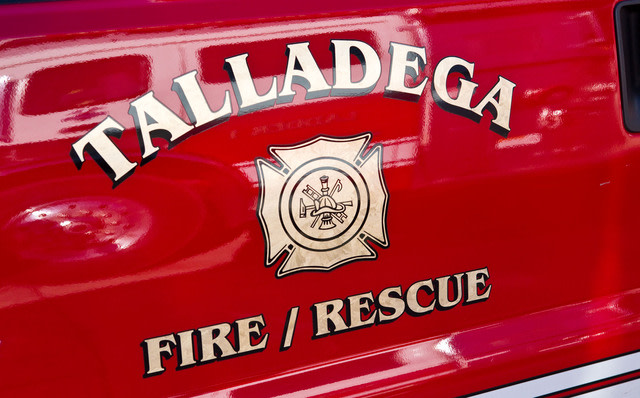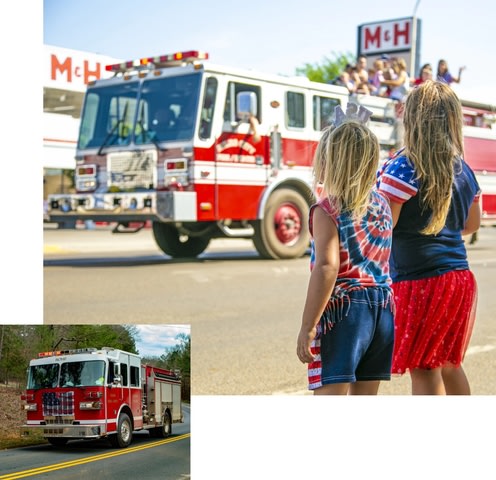Helpful Links

Holiday Safety:
Decorating homes and businesses is a tradition during the holiday season. Decorations may increase the chance of fire. However, follow a
few simple Christmas tree and holiday decoration fire safety tips to ensure Happy Holidays for you and your family.
Statics show incidents of home fires and electrical accidents increase during winter months, says Chief Warwick of Talladega Fire Department.
Thirty percent of home fires and thirty-eight percent of fire related deaths occur in December, January, and February according to National Fire Protection Association. Therefore, its critical families keep fire safety in mind while enjoying the holiday season.
Fire Prevention
Talladega Fire Department provides customized fire prevention instruction to businesses, organizations and citizens in the primary response area. You can schedule a class, presentation or a facility tour by contacting Talladega Fire Department, Fire Prevention Coordinator.
Phone:

Visit these websites to get informative fire prevention and safety related material:
Winter Fire Safety Tips for the Home
Talladega Fire Rescue Department continues to fight structure fires at an alarming rate. The high cost of home heating fuels and utilities have caused many Americans to search for alternate sources of heating. The use of wood-burning stoves is growing and space heaters are selling rapidly, or coming out of storage. Fireplaces are burning wood and manmade logs. These methods of heating are acceptable and their usage are factors in residential fires. However, with precautions, these fires can be prevented. Please follow these tips during the winter season.

Furnace Heating
Wood Stoves and Fireplaces
Kitchen Stoves
Kerosene Heaters
Electric Heaters
Other Fire Safety Tips
Contact the Talladega Fire Rescue Department at (256) 362-3149 for additional questions or concerns.
REMEMBER: FIRES START WHEN YOUR ATTENTION STOPS!!!
Summer Safety Tips
Turn Your Attention to Fire Prevention,
Outdoor Grilling Safety Tips:
The Talladega Fire Department encourages chefs to pay attention to safety in the summer months when home fires involving grilling incidents occur most often. Nearly half of the people who grill do so year-round. July is the peak month for grilling fires followed by May, June and August. Each year an average of 8,800 home fires are caused by grilling and close to half of all injuries involving grills are due to burns from hot objects.

Key Points
Grilling Fire Safety: FEMA Public Service Announcement
